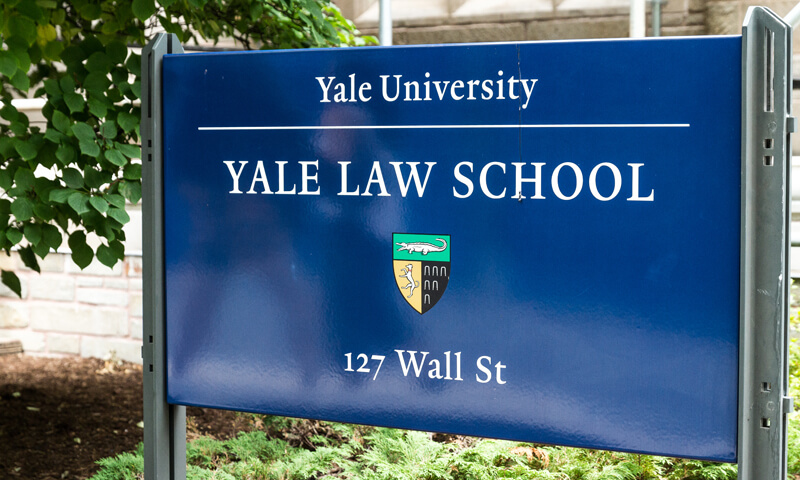Summary: In 2012, several Secret Service agents and military members were fired for alleged involvement in a prostitution scandal in Colombia. Although the White House denied its staff was involved at the time, evidence has been released that shows that a White House volunteer may have hired a prostitute as well.
According to the Washington Post, several senior White House aides were well informed about a 2012 prostitution scandal in Colombia that led to the firing of many members of the military and Secret Service agents.
On April 14, 2012, President Obama arrived in Cartagena, Colombia. White House officials had hoped that the visit would serve to build economic ties with Latin America. The news that Secret Service agents had hired prostitutes and brought them to their hotel rooms quickly spread. Obama initially said that the agents were “a couple of knuckleheads” and told reporters that his expectations for Secret Service agents are “no different than what I expect out of my delegation that’s sitting here.” The president added, “We’re representing the people of the United States, and when we travel to another country I expect us to observe the highest standards, because we’re not just representing ourselves.”
Although the Obama administration denied that anyone from the White House was involved in the scandal, documents now show that White House senior aides had information at the time that hinted a prostitute was staying with a presidential advance-team member in a hotel room. However, this tidbit of information was never investigated fully or publicly acknowledged.
The Secret Service gave information to the White House, including hotel records and personal accounts. This was the same type of evidence that the Secret Service and the military relied upon to determine which persons were involved.
Soon after the scandal occurred in 2012, the Secret Service disclosed its investigation to top White House officials. This included Kathryn Ruemmler, then-White House Counsel. She and other presidential aides held interviews with the advance-team member and found that no misconduct had occurred.
However, additional information now shows that another group of investigators in the inspector general’s office in the Department of Homeland Security gathered additional evidence from both records and witnesses who were with the team member in Colombia. A Senate committee had directed that investigation.
David Nieland, the lead investigator for the inspector general’s office, told Senate staffers, “We were directed at the time…to delay the report of the investigation until after the 2012 election.” He added that he felt pressure from superiors in Charles K. Edwards’ office to withhold evidence. Edwards, at the time, was the inspector general. Due to 2012 being an election year, decisions were centered around possible effects on politics.
Nieland’s superiors apparently told him “to withhold and alter certain information in the report of investigation because it was potentially embarrassing to the administration.” Edwards’ position was that changes to the report were simply edits, and that he directed that the focus of the investigation be on Department of Homeland Security employees.
Eric Schultz, White House spokesman, stated on Wednesday that President Obama and his advisors did not restrict the investigation of the inspector general. Schultz said, “As was reported more than two years ago, the White House conducted an internal review that did not identify any inappropriate behavior on the part of the White House advance team.” He noted an April Senate report on the inspector general’s office that concluded an inquiry was not able to support Nieland’s assertion that he was forced to change the report due to political pressure.
Jonathan Dach, a 25-year-old Yale Law student at the time of the scandal in Colombia, served as a White House volunteer. Whether Dach actually committed any misconduct at the time is still unknown. He issued a statement through his attorney that denies ever hiring a prostitute or bringing anyone to his hotel room. He has repeated this denial to White House officials. This year, Dach was hired on a federal contract to serve as a policy adviser in the Office on Global Women’s Issues at the State Department.
Dach was not paid a salary, but only received a per diem. He was also reimbursed for expenses.
Leslie Dach, Jonathan’s father, is a well-known donor of the Democratic party. In 2008, he donated $23,900 to facilitate Obama’s election. The senior Dach previously served as a lobbyist for Wal-Mart, during which he joined the White House on many popular projects, including the First Lady’s “Let’s Move!” initiative.
Leslie Dach was also hired on at the Obama administration this year. He was named a senior counselor with the Department of Health and Human Services, for which he’ll be handling the next stage of the Affordable Care Act.
Richard Sauber represents both Dach men, and maintains that Jonathan vehemently denies involvement in the Colombian prostitution scandal and that no one in the Dach family attempted to influence White House officials or hinder the investigation. Sauber explained, “The underlying allegations about any inappropriate conduct by Jonathan Dach in Cartagena are utterly and completely false. In addition, neither he nor anyone acting on his behalf ever contacted the DHS IG’s office about its report.”
In the inspector general’s office, many fights broke out between investigators and their bosses regarding whether the White House team members should be pursued. Many office staffers who questioned White House roles commented that they were placed on administrative leave as a punishment. Edwards resigned in light of allegations of misconduct that resulted partly from these disputes.
Secret Service agents remain frustrated with the White House’s insisting that none of its team members did anything wrong and for failing to fully investigate the claims, while many Secret Service agents’ careers were ruined over the allegations. Ten agents lost their jobs. They were told that they put national security at risk by drinking too much and by interacting with foreign nationals.
Larry Berger, an attorney who represented several of the Secret Service agents, said that they were treated “radically different by different parts of the same executive branch.”
Due to recent allegations that the Secret Service has allowed security breaches, Representative Jason Chaffetz (R-Utah) requested records of Ruemmler’s review, and expressed concern that “steps were taken by the Administration to cover-up or deflect” any White House involvement.
The role of White House volunteers and Secret Service agents are clearly quite different, as volunteers are not responsible for protecting the president from harm. Dach and other volunteers were submitted to background checks, and only had general information about the president’s itinerary on trips such as the one to Colombia. These travel volunteers are recommended by White House staff, and it is emphasized that they are “mini-ambassadors” for the United States and that their conduct reflects on the president and the first lady.
Officials previously explained that no further investigation of Dach was necessary, since he was not a government employee. Further, prostitution is legal in parts of Colombia, including Cartagena. Interviews were held with the volunteers, and their expense accounts were reviewed.
One official stated Ruemmler felt it would be a “real scandal” if she sent “a team of people to Colombia to investigate a volunteer over something that’s not a criminal act…that would be insane.”
Evidence that hinted at Dach’s involvement was provided by the Secret Service on April 20. It simply said that Secret Service investigators obtained evidence that Dach registered a prostitute to his hotel room at the Hilton Cartagena Hotel after midnight on April 4. At the time the White House felt this information was little more than a “rumor.” The same day the information was provided by the Secret Service, Jay Carney, press secretary, said that the incident did not “involve anyone but the agents and the military personnel.”
White House attorneys in Ruemmler’s office interviewed all the travel-office advance team members who were on the trip, including Dach, who denied wrongdoing. Other volunteers, who had gone to dinner with Dach, stated they did not witness any misconduct. The lawyers concluded that there was “no credible information” to accuse Dach or anyone else from the White House of any wrongdoing at that time.
Much more extensive investigations were conducted into Secret Service and Pentagon officials. Teams were sent to Colombia for over two weeks to locate and interview prostitutes and hotel staff. Polygraph tests were also given to each agent, asking whether a prostitute had been brought back to the agent’s hotel room.
The Secret Service later contacted the White House and provided more detailed evidence that Dach was involved in the misconduct. Mark Sullivan, the director of the Secret Service at the time, told Ruemmler that copies of hotel records had been obtained which showed an additional overnight guest had been registered to his hotel room the night of April 4. For security reasons, many Colombian hotels keep detailed records of overnight guests, and prostitutes must show I.D. to verify they are not underage. Photocopies are made of the I.D.
A woman was registered to Dach’s hotel room at 12:02 a.m. on April 4. A photocopy of a woman’s identification was attached to hotel documents. According to hotel staff, Dach was one of three guests who registered additional guests to their rooms. The others were a military staffer and a Secret Service agent. The room number on the records, 513, is the room listed for Dach on a hotel bill and on hotel registration records.
However, the White House maintains its previous position. The White House pointed out that many Secret Service agents were staying at the Hotel Caribe, and one Secret Service agent was falsely accused of bringing a prostitute to his room at that hotel.
The separate inspector general investigation also hinted that Dach had hired a prostitute. One agent said he witnessed Dach with a woman who appeared to be a prostitute, and another had records that showed a woman was registered to Dach’s room. Nieland’s investigators also discovered that the hotel waived the fee for Dach to register a guest because he was a Hilton Honor Member.
Nieland’s team also found that the name of the woman supposedly registered to Dach’s room was used in an Internet advertisement for prostitution. She was pictured in underwear in front of the “Summit of the Americas” sign in Cartagena at the time of the visit.
Nieland and two other office members fought or questioned report alterations. The three were later put on administrative leave. Edwards and other superiors stated that the discipline was not related to the alterations. The Office of Special Counsel, where one of the staff members filed a complaint against Edwards, released a letter saying there was convincing evidence that the discipline was retaliatory.
The Senate report noted that Nieland both stated he did not suspect a “cover-up” in the report alterations and that he knew they were “sitting on information that could influence an election.” Edwards later stepped down.
Edwards drafted a summary letter to Congress in September 2012 that made reference to hotel logs that suggested a White House advance-team member possibly had an overnight guest, but clarified that his investigators did not pursue the issue because it was outside that agency’s jurisdiction. More information in the report has been made public that points to a White House advance-team member.
Photo credit: www3.hilton.com













































